Treatment of Graves' disease (diffuse toxic goiter)
Diffuse toxic goiter (DTG) is an endocrine disease that causes increased production of thyroid hormones, which leads to an increase in the size of the thyroid gland and the development of thyrotoxicosis. Common symptoms of Graves' disease also include exophthalmos, sudden weight loss, nervousness, cardiovascular problems. Untimely treatment by a doctor can provoke a dangerous complication - thyrotoxic crisis, which requires immediate hospitalization.

specialists

equipment

treatment
Classification
Classification by severity
There are three stages of pathology development:
- Mild. There are no external changes, the patient complains of nervousness, with tachycardia, the pulse does not exceed 100 beats per minute. The endocrine system works without failures
- Moderate. Visually noticeable changes and a lump in the neck. Complaints of discomfort when swallowing. The pulse increases to 110 beats per minute. The patient loses weight sharply with a normal appetite
- Severe. Develops in an advanced state of pathology and in the absence of treatment. The patient is diagnosed with liver, kidney and cardiovascular dysfunction. Weight loss leads to exhaustion
The doctor also determines the severity of the pathology by the size of the tumor.
Classification according to O. V. Nikolaev
The system was developed back in 1955 and is still used to determine the stage of the disease by palpation, taking into account the following external manifestations:
- 0 degree - no external changes
- 1 degree - a small lump is palpated on both sides of the neck
- 2 degree - the neck is of normal shape, the formations are noticeable when swallowing (the isthmus of the thyroid gland is visible)
- 3 degree - the thyroid gland is enlarged, the neck looks thicker
- 4 degree - the goiter protrudes on the surface of the neck, is noticeable visually
- 5 degree - the goiter is greatly enlarged, compresses the trachea and esophagus, breathing and swallowing are difficult
This classification is used in the Russian Federation and is more extensive than that offered by the World Health Organization.
Classification recommended by WHO
In world practice, Graves' disease is usually divided into three stages:
- 0 - The thyroid gland is normal, the volume of the right and left lobes does not exceed the phalanx of a finger
- 1 - There are no visual changes in the neck, you can feel a uniform enlargement of the thyroid gland
- 2 - The goiter is noticeable visually, the neck is not deformed
This classification does not provide for a more precise division of the disease of severe severity with an assessment of symptoms, as on the Nikolaev scale.
Since 2007, the Fadeev-Melnichenko classification has also been used in clinical practice, which determines the type of disease depending on the degree of thyrotoxicosis in toxic goiter and hormone levels:
- Subclinical stage - there are no external manifestations, symptoms are not expressed, deviations from the norm can be traced by laboratory blood tests for hormones (TSH is reduced, and T3 and T4 are normal)
- Manifest stage - tests show an increase in T3 and T4 values with a low TSH level
- Complicated stage of thyrotoxicosis - thyroid hormone levels are extreme, which is accompanied by severe symptoms
Thyrotoxicosis is one of the indicators of Graves' disease, but not the only symptom, since may also accompany other thyroid diseases.

Thyroid-stimulating hormone is secreted by the pituitary gland in the brain. When there are a number of different causes, hormone synthesis can increase sharply, which can provoke hypertrophy of the thyroid gland and the formation of goiter. According to medical research, the occurrence of diffuse goiter is primarily influenced by hereditary factors. The risk of developing the pathology also increases in people suffering from other autoimmune diseases, such as diabetes mellitus, hypocorticism or Addison's disease. Stress and severe infectious diseases also act as provoking factors.
The development of DTG can also be facilitated by conditions associated with mental disorders, malfunction of the pituitary gland and endocrine system (traumatic brain injury, neurological pathologies, adrenal diseases).

Antibodies to thyrotropin receptors are more often detected in representatives of the Caucasian race, and women get sick 5 times more often than men. The immune disorder is genetically determined and therefore is inherited from parents to children. The probability of the disorder developing into hyperthyroidism is higher if several factors coincide at once - genetic predisposition and other conditions (recent childbirth, smoking, chronic stress).
Infectious triggers
Infectious diseases such as encephalitis and even the common flu can aggravate the autoimmune reaction of the body. So far, doctors do not know exactly how infections provoke hyperactivity of the thyroid gland, but it is believed that the matter is in the weakening of the immune system in people with a predisposition to hyperthyroidism. The immune system loses the ability to identify thyroid antigens and attacks them like other active viruses.

The success of treating Graves' disease depends on how quickly the patient notices dangerous symptoms and consults a doctor for consultation and diagnosis. Symptoms can be divided by external manifestations from different organs and systems. If at the first stage of hyperthyroidism there are no physical manifestations or they are easily confused with symptoms of other pathologies, then, as the disease progresses, there are more symptoms and they cover almost the entire body. Glucose tolerance decreases, which can develop into insulin resistance and type 2 diabetes.
General condition
Skin and hair condition
The skin with hyperthyroidism is soft, moist and warm. On dry areas (palms, elbows) and folds, the skin darkens, peels, and the hair thins. On the feet and shins, the skin is hard, covered with an "orange peel", itches and scratches. In severe stages, hyperpigmentation appears on areas of the body not covered by clothing, after exposure to the sun.
Complications
Graves' disease progresses rapidly and without treatment becomes severe. This leads to:
- Vision impairment (up to complete loss)
- Bone resorption due to calcium leaching
- Infertility
- Adrenal insufficiency
- Fatty liver disease (up to cirrhosis)
- Mastopathy and gynecomastia
- Atrial fibrillation
- Sinus tachycardia
- Heart failure and pain
- Severe mental disorders and disorientation
- Temperature increase up to 40 degrees
- Thyrotoxic hepatosis or hypokalemic transient paralysis
The main danger from protracted Graves' disease - development of thyrotoxic crisis. It combines symptoms of acute adrenal insufficiency and thyrotoxicosis with fever, psychosis and respiratory failure. Dyspepsia symptoms appear - nausea and vomiting with intense thirst and high temperature. Pulse reaches 200 beats per minute.
With adrenal insufficiency, the pulse is poorly felt. Microcirculation of fluids in tissues is disrupted, edema increases. Such symptoms require calling a doctor and immediate hospitalization.
Diagnostics
The endocrinologist usually makes a primary diagnosis based on an external examination and collection of the patient’s complaints. With severe ophthalmopathy and a prominent lump on the neck, the doctor suspects hyperthyroidism and prescribes an examination.
Diagnostics may include:
- Palpation and ultrasound of the thyroid gland
- Blood tests for thyroid-stimulating hormones - TSH, free T3, T4, pituitary hormones
- Immunogram - analysis for antibodies to thyroglobulin, AT TPO, antibodies to TSH receptors
- Thyroid scintigraphy (necessary to differentiate Graves' disease from other disorders in the thyroid gland, which are also accompanied by thyrotoxicosis, but without ophthalmopathy)
At a severe stage, if there is a suspicion of oncology, the doctor may prescribe fine-needle biopsy. Elderly patients undergo electrocardiography.
The doctor can also perform reflexometry - checking the condition of the Achilles tendon on the leg. With diffuse goiter, it is shortened, which is indirect evidence of thyrotoxicosis. To assess the degree of dysfunction of the internal organs affected by thyrotoxicosis and to develop treatment tactics, examinations by narrow specialists - a cardiologist, neurologist, ophthalmologist - may be required.
With severe ophthalmopathy and endocrine orbitopathy, an extended diagnosis of the eye socket and surrounding tissues, the condition of the eyeball and vision is required. In advanced cases, surgery is prescribed.
Treatment
Conservative pharmacological treatment
First of all, the endocrinologist prescribes drug therapy and selects medications that help normalize hormonal levels. Glucocorticosteroids and antithyroid drugs block the synthesis of thyroid hormones, and in 10-15% of cases this is enough for stable remission.
Pharmacological treatment is prescribed only in the initial stages of Graves' disease, when the volume of the thyroid gland does not exceed 40 ml, does not compress the surrounding tissues, there are no large nodes and no complications.
Taking medications eliminates the main symptoms of thyrotoxicosis: tremor, sweating, weight loss and rapid pulse. Drug therapy helps preserve the thyroid gland and avoid surgery. The drugs must be taken strictly according to the prescribed regimen, for at least 1 year. If a relapse occurs a few months after the end of the course, more radical methods are used to remove the source of the disease.
Radioiodine therapy
This method is more gentle and non-surgical, destroying damaged thyroid tissue. Radioactive iodine is used in a certain dosage. The substance first accumulates in the tissues and then acts from the inside, like local irradiation.
Radioiodine therapy can remove up to 60 ml of thyroid tissue. After using this radical method, the likelihood of complications is reduced and sutures can be avoided, as after surgery. The method is contraindicated for pregnant and lactating women.
Important! Radioactive iodine is a special substance I-131, which has nothing in common with vitamins that contain iodine. On the contrary, patients with thyrotoxicosis are contraindicated from consuming any iodine-containing vitamins or products (sea salt with iodine, seafood).
Surgical treatment
Surgery to remove all or part of the gland is performed as a last resort, when drug therapy is ineffective, as well as in the later stages of the disease.
Indications for surgery:
- Intolerance to medications used in drug therapy for diffuse goiter
- A sharp increase in the level of leukocytes against the background of drug treatment
- Goiter stage 3 and higher
- Relapse after a course of treatment
- Presence of severe autoimmune diseases
- Severe cardiovascular diseases
Hypothyroidism occurs after thyroidectomy and complete removal of the thyroid gland. The lack of hormones is compensated for by hormone replacement therapy, which is necessary throughout the patient's life.
You should not delay in contacting a doctor and treating Graves' disease, as it progresses quickly and the likelihood of getting by with drug therapy alone decreases. In some cases, even with a small volume of goiter, a person may have severe thyrotoxicosis, in which case immediate surgery is recommended.
Peculiarities of treatment in pregnant women
The likelihood of hyperthyroidism during hormonal changes increases dramatically. Antibodies to TSH receptors penetrate the fetus, accumulate and can lead to such transient neonatal thyrotoxicosis, which is dangerous for both the child and the process of bearing the child
During pregnancy, the patient is registered with an endocrinologist who selects treatment. In the first and second trimester, up to 25 weeks, propylthiouracil preparations are prescribed, which minimally penetrate the placenta and will not harm the fetus. Therapy helps to stabilize the level of the T4 hormone and relieve symptoms. After childbirth, the hormone level normalizes and usually after a few months the disease disappears.
Prognosis and prevention
With timely treatment and properly selected therapy, the prognosis of the disease is favorable. Most patients experience stable remission, symptoms of thyrotoxicosis disappear, and the thyroid gland decreases in size.
During treatment and after surgery, avoid sun exposure, exclude iodine-containing foods and medications.
Prevention of the disease consists of periodic observation by an endocrinologist and monitoring of thyroid hormone levels, timely elimination of foci of infection in the body. If the parents had toxic goiter, children should undergo an annual examination by an endocrinologist.
Epidemiology
Graves' disease is a relatively rare disease, but among all autoimmune pathologies it occupies the first positions. The risk group includes women of young reproductive age who have a hereditary predisposition or other autoimmune diseases. However, even the presence of Graves' disease in relatives does not fully guarantee the appearance of goiter. To control the condition, you need to follow preventive measures and undergo regular examinations.
In the K+31 clinic, you can get an endocrinologist's consultation, diagnostics and, if necessary, treatment of Graves' disease using modern effective technologies. This will not only effectively control the course of the disease, but also improve the patient's quality of life due to an individual approach, high professionalism of doctors and minimization of the risk of complications.


This award is given to clinics with the highest ratings according to user ratings, a large number of requests from this site, and in the absence of critical violations.

This award is given to clinics with the highest ratings according to user ratings. It means that the place is known, loved, and definitely worth visiting.

The ProDoctors portal collected 500 thousand reviews, compiled a rating of doctors based on them and awarded the best. We are proud that our doctors are among those awarded.
Make an appointment at a convenient time on the nearest date
Price













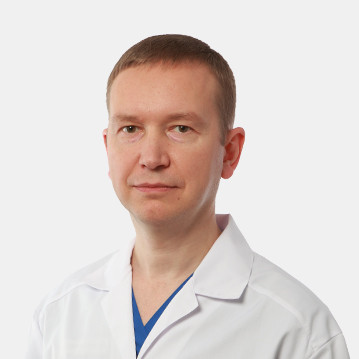
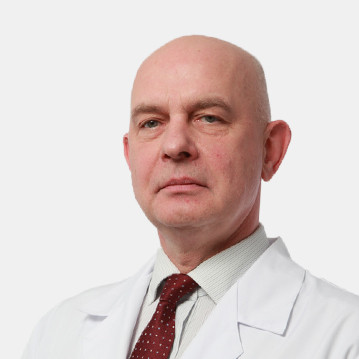
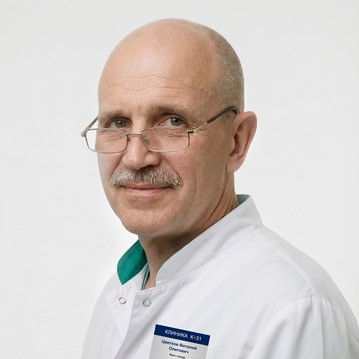
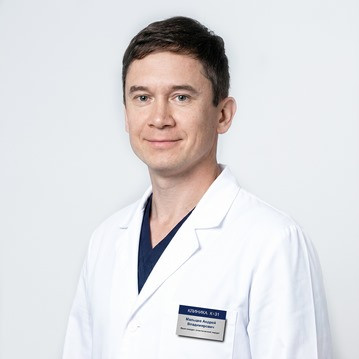
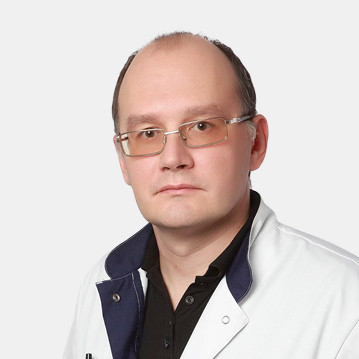
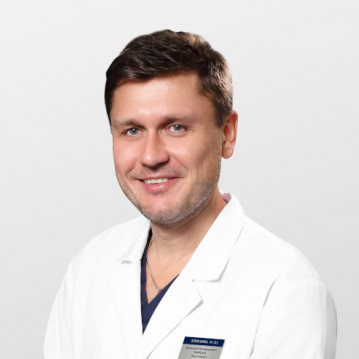
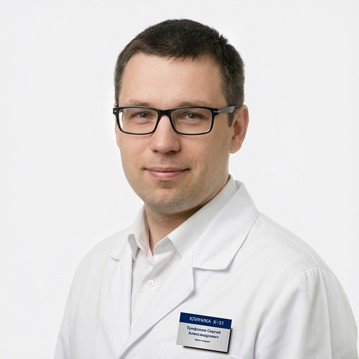
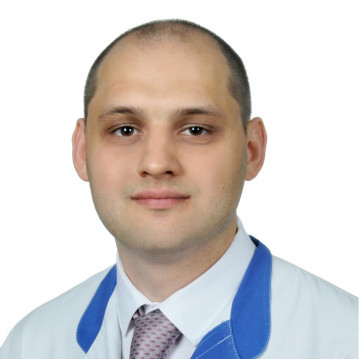
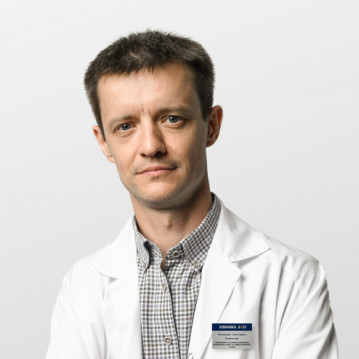
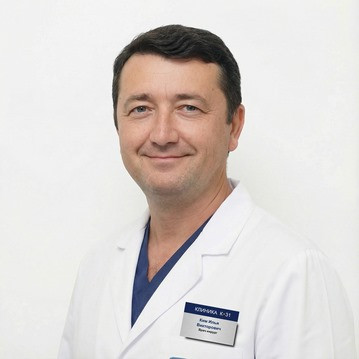
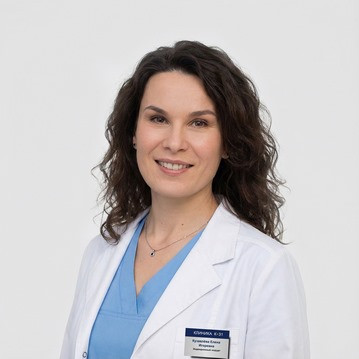
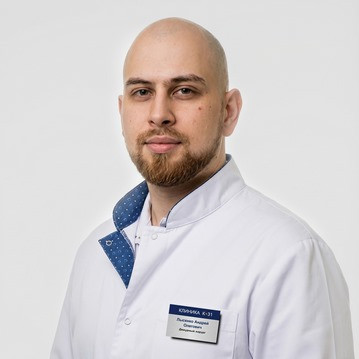
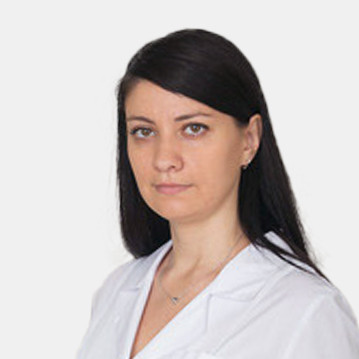
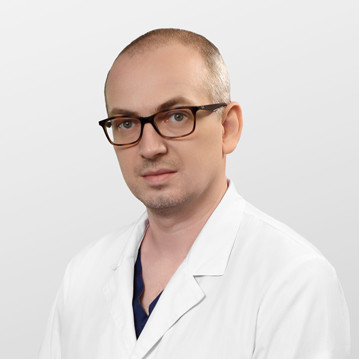
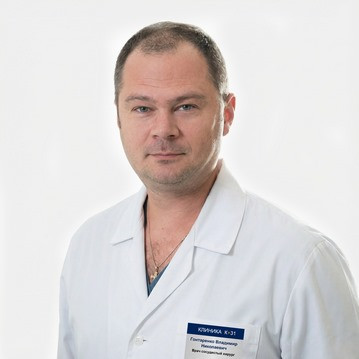
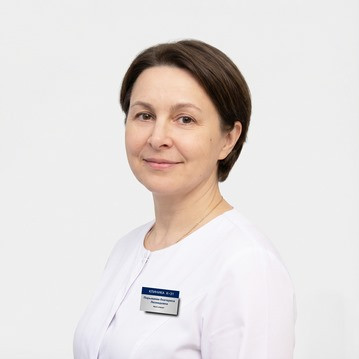
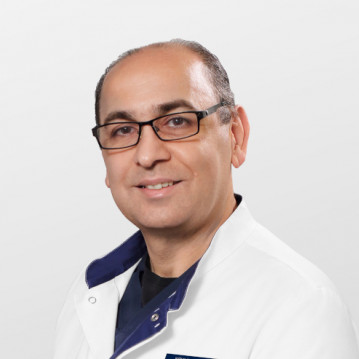
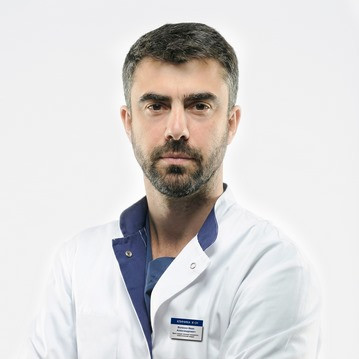
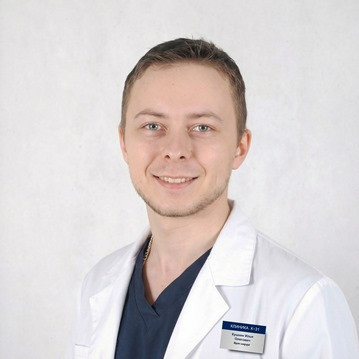
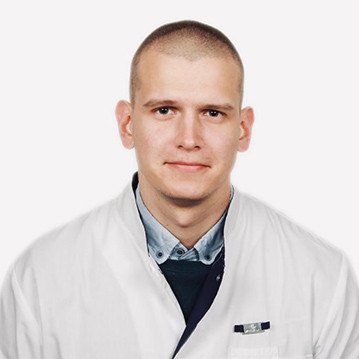
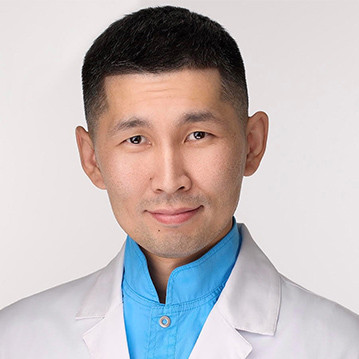

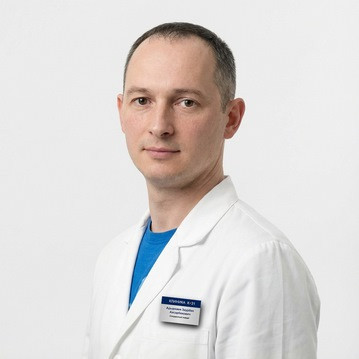
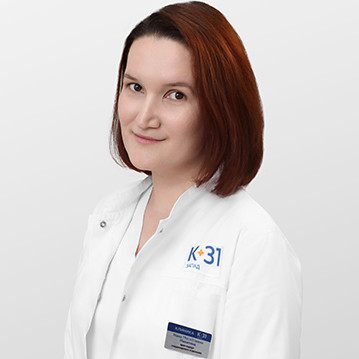
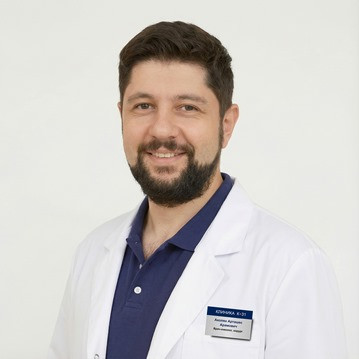
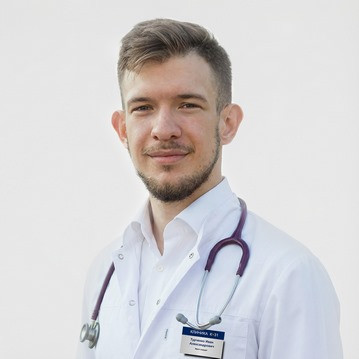

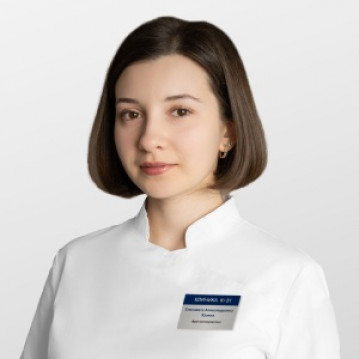
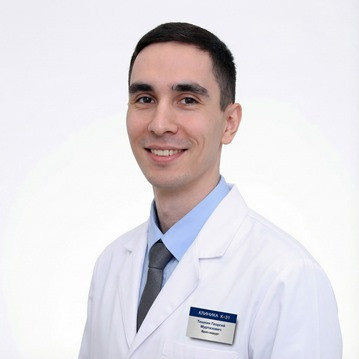
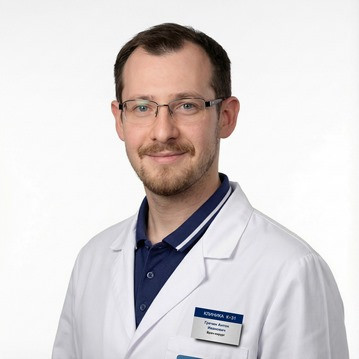
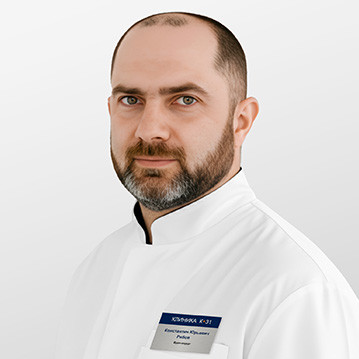
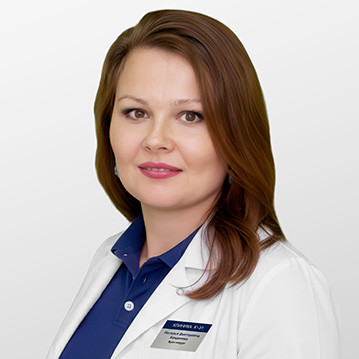
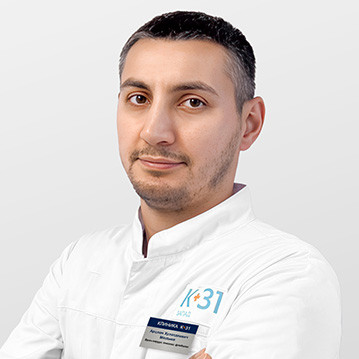
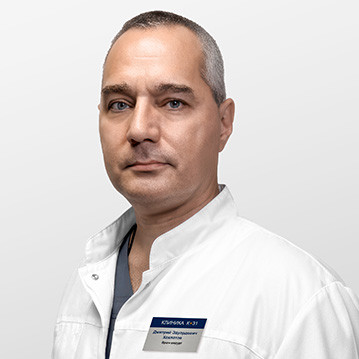
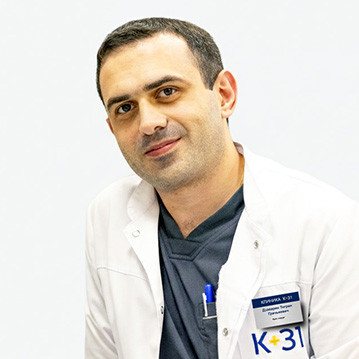

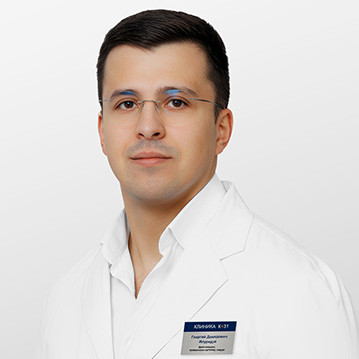
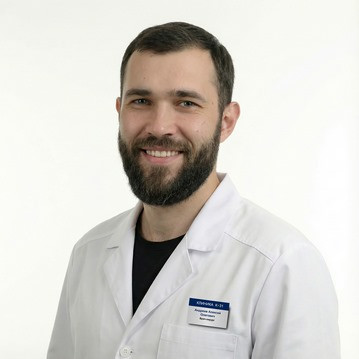
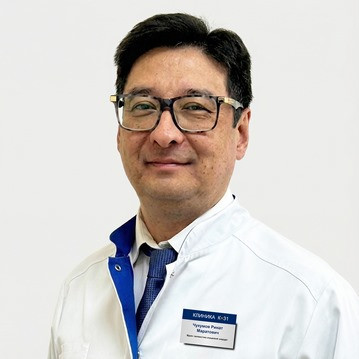
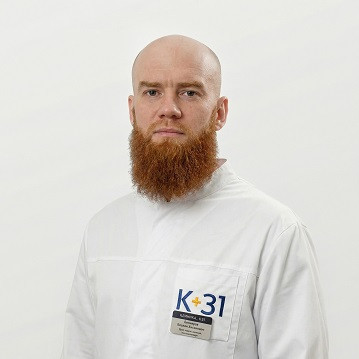
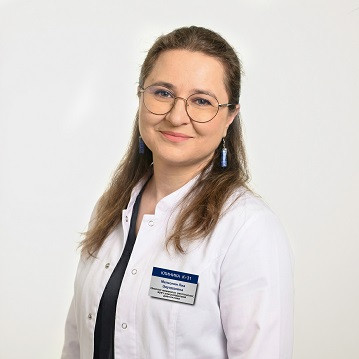
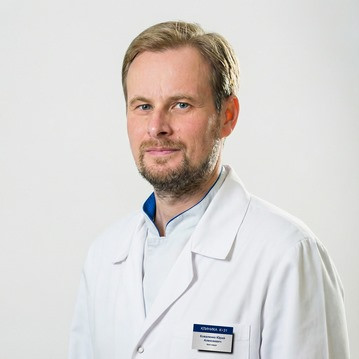
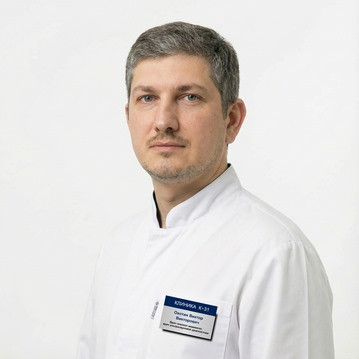
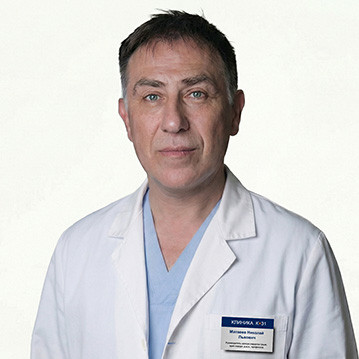
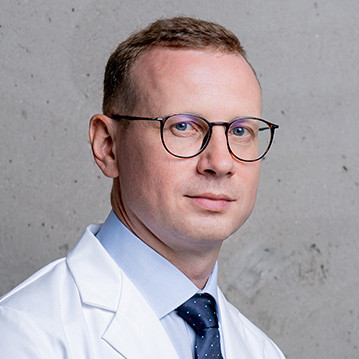





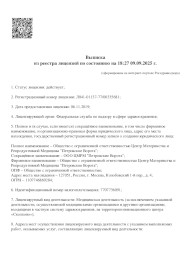
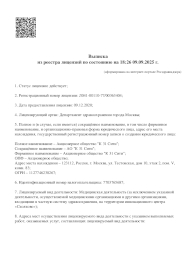
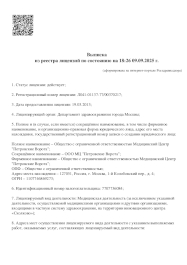
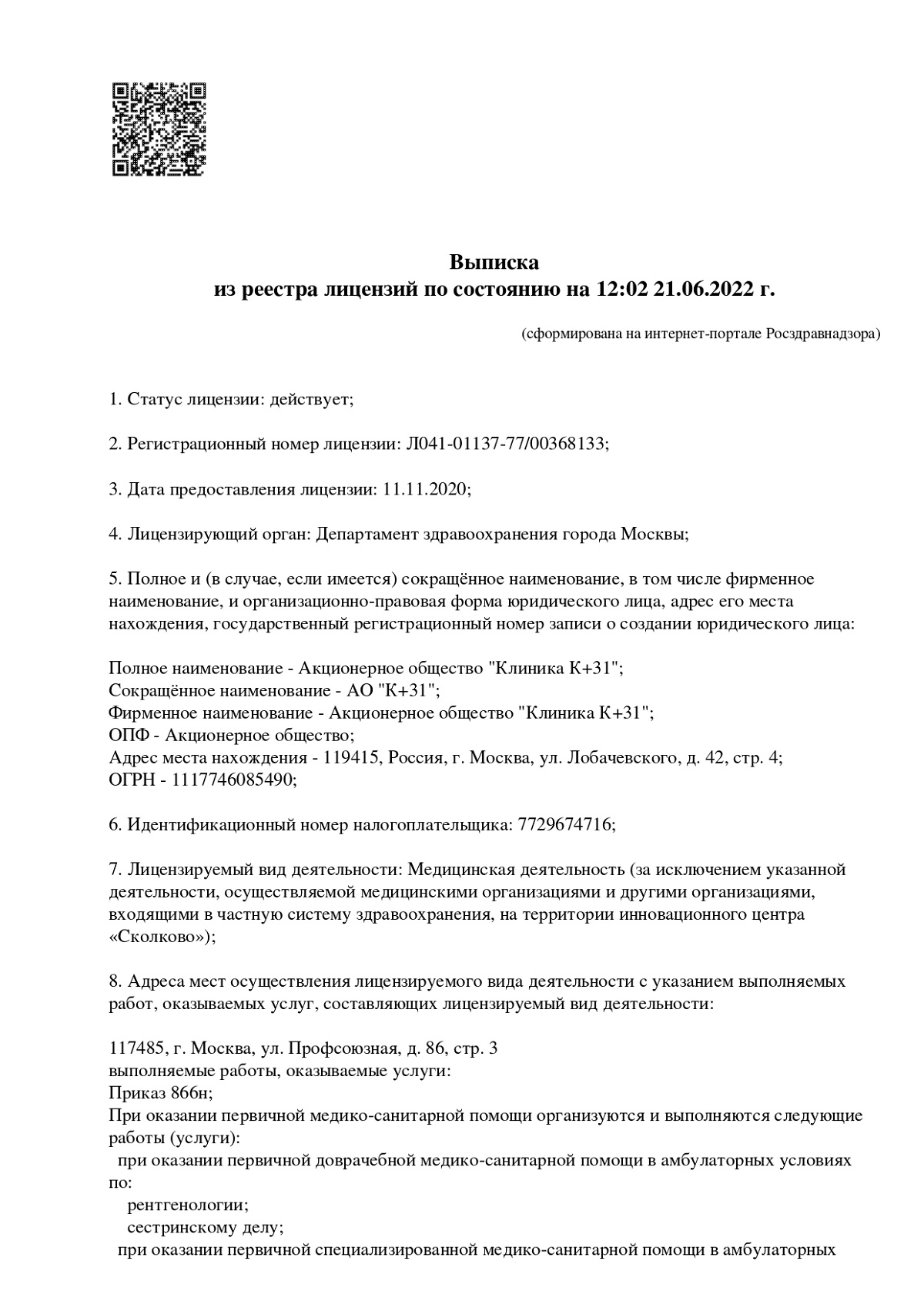
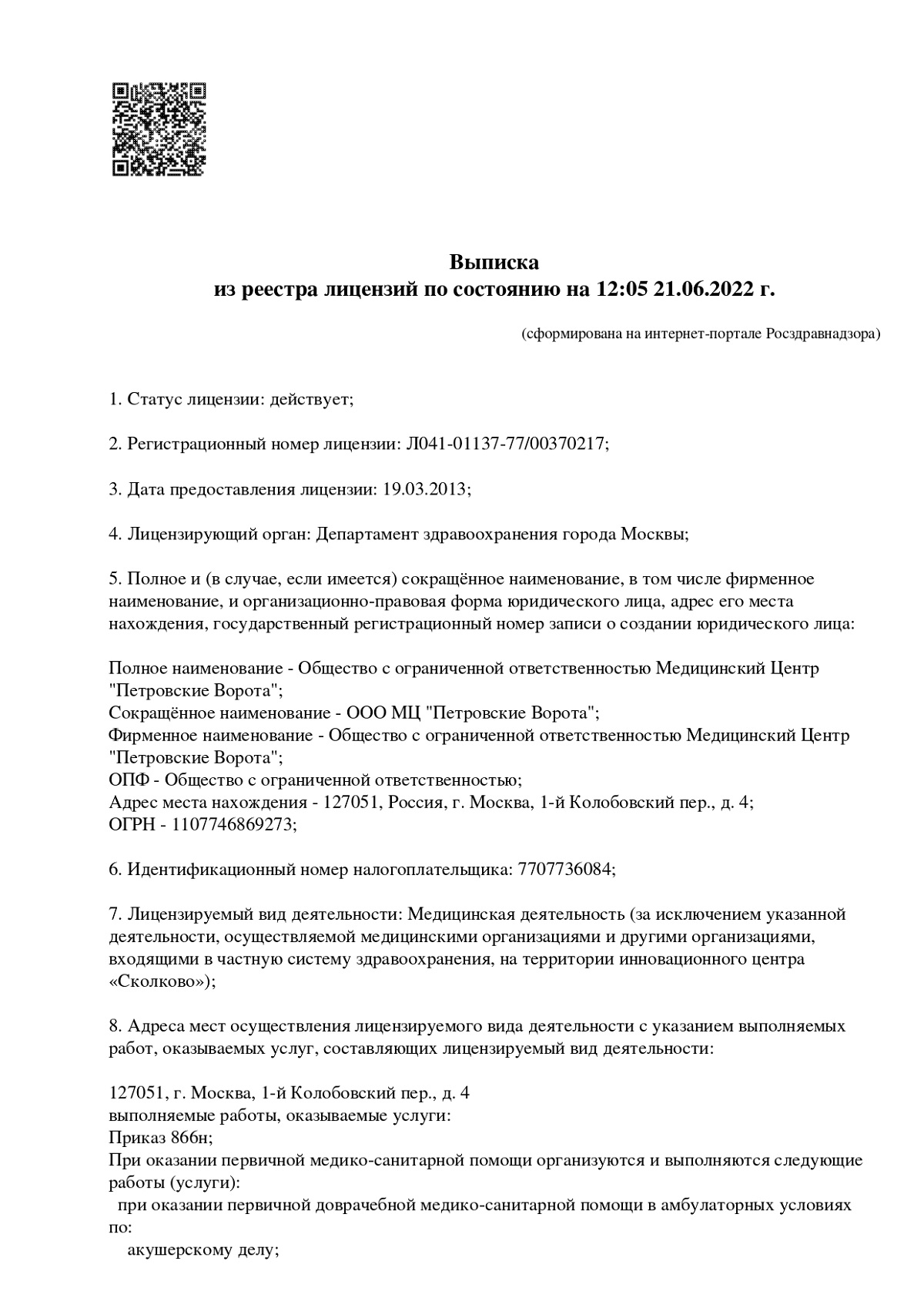
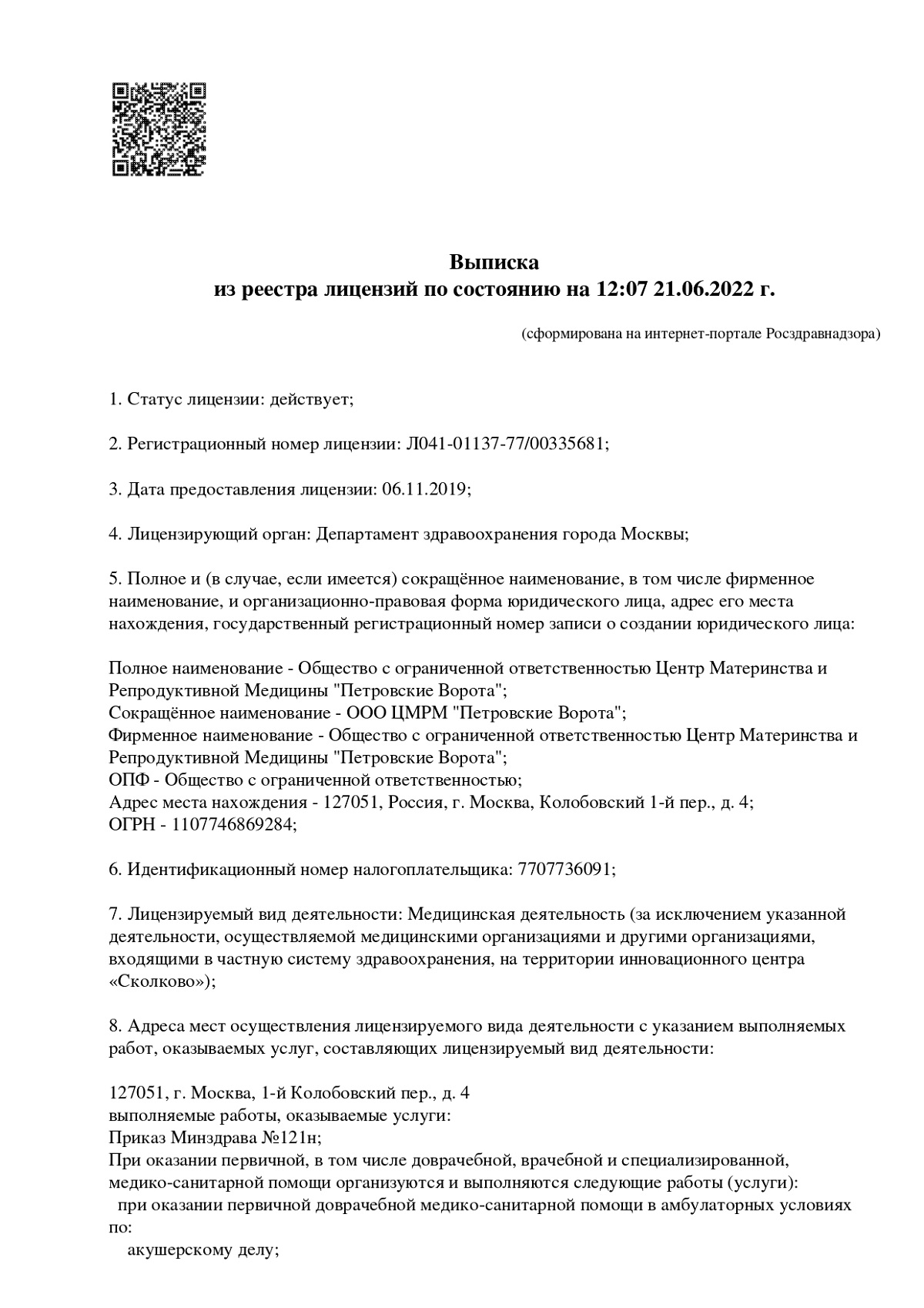
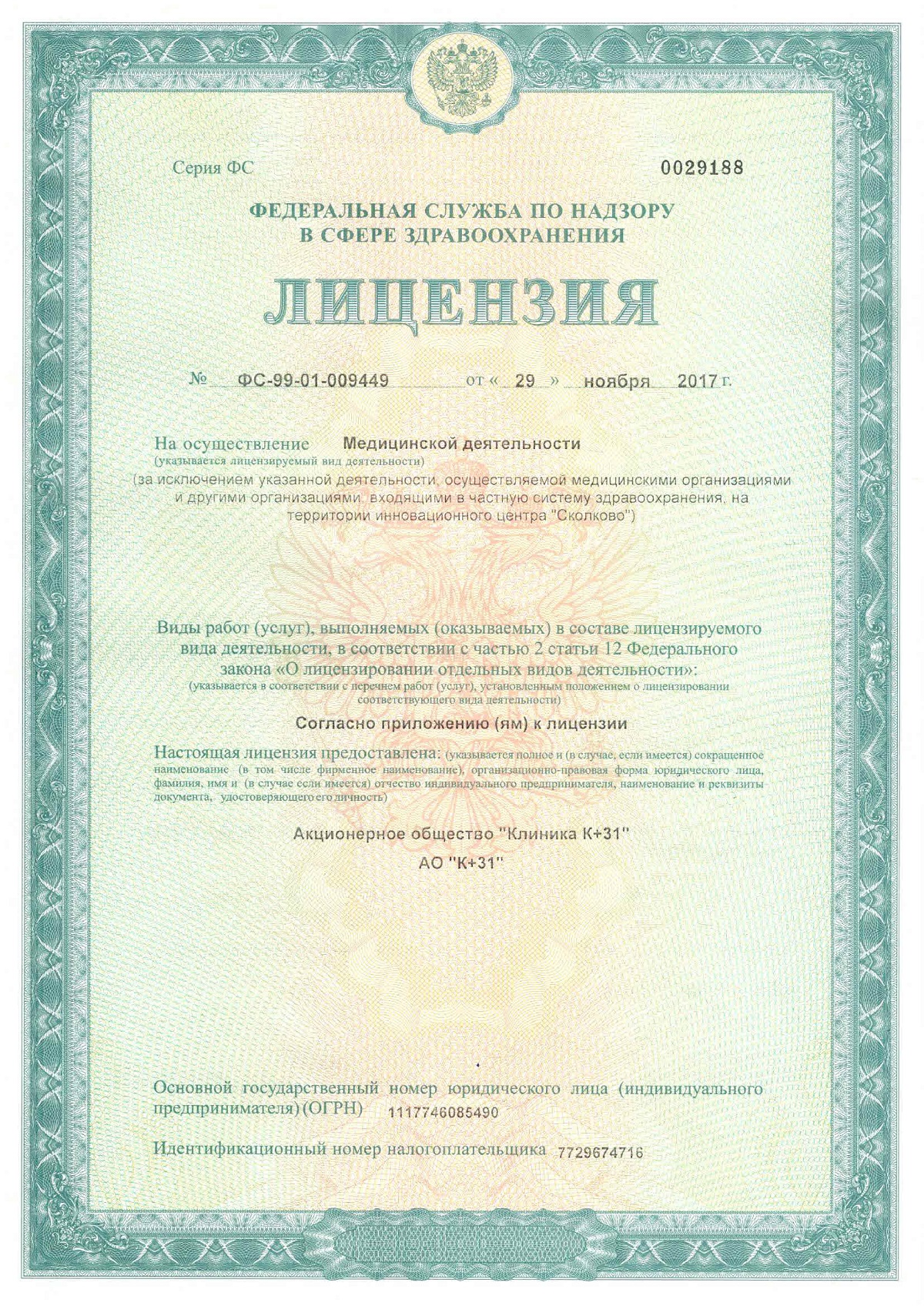
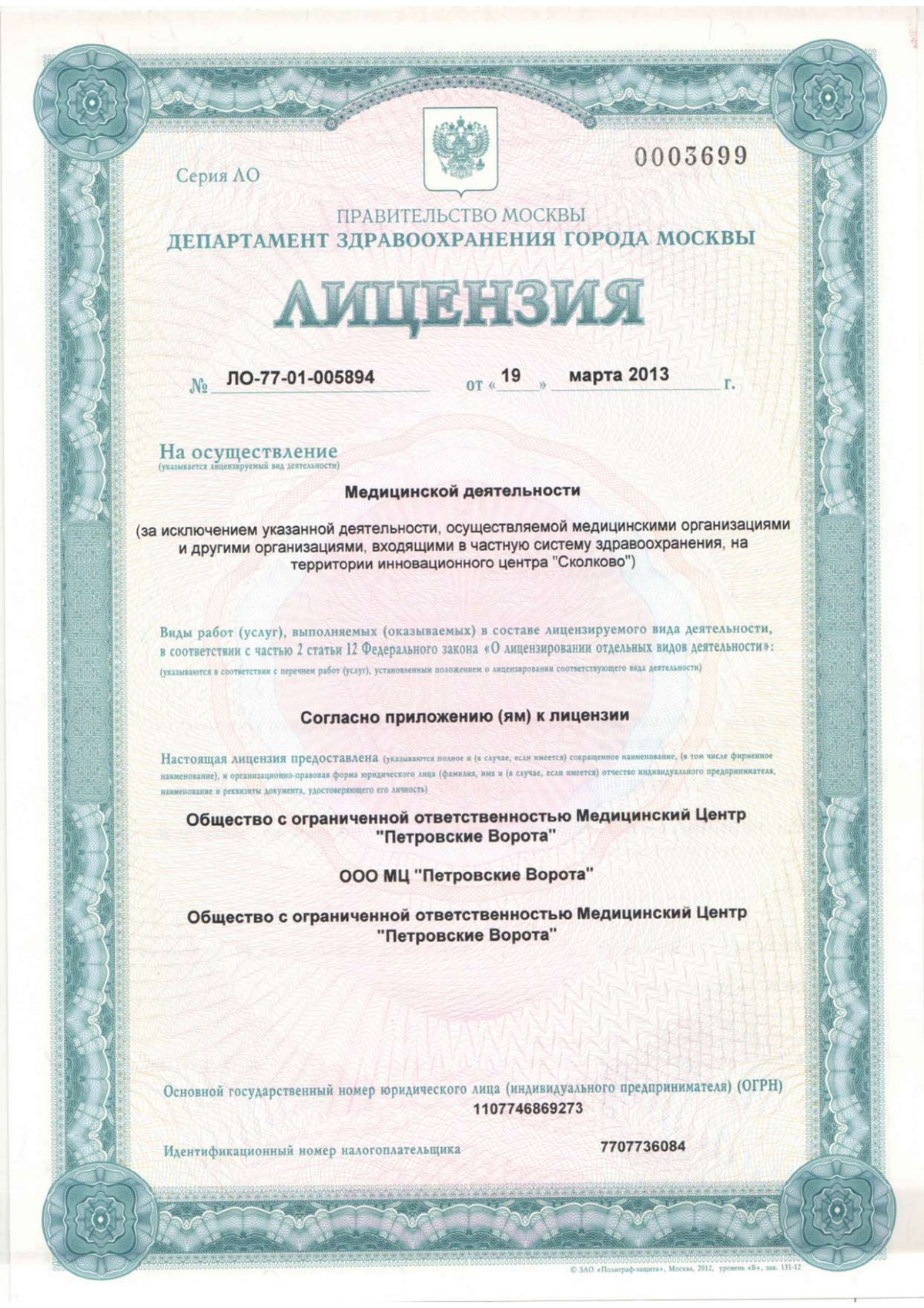
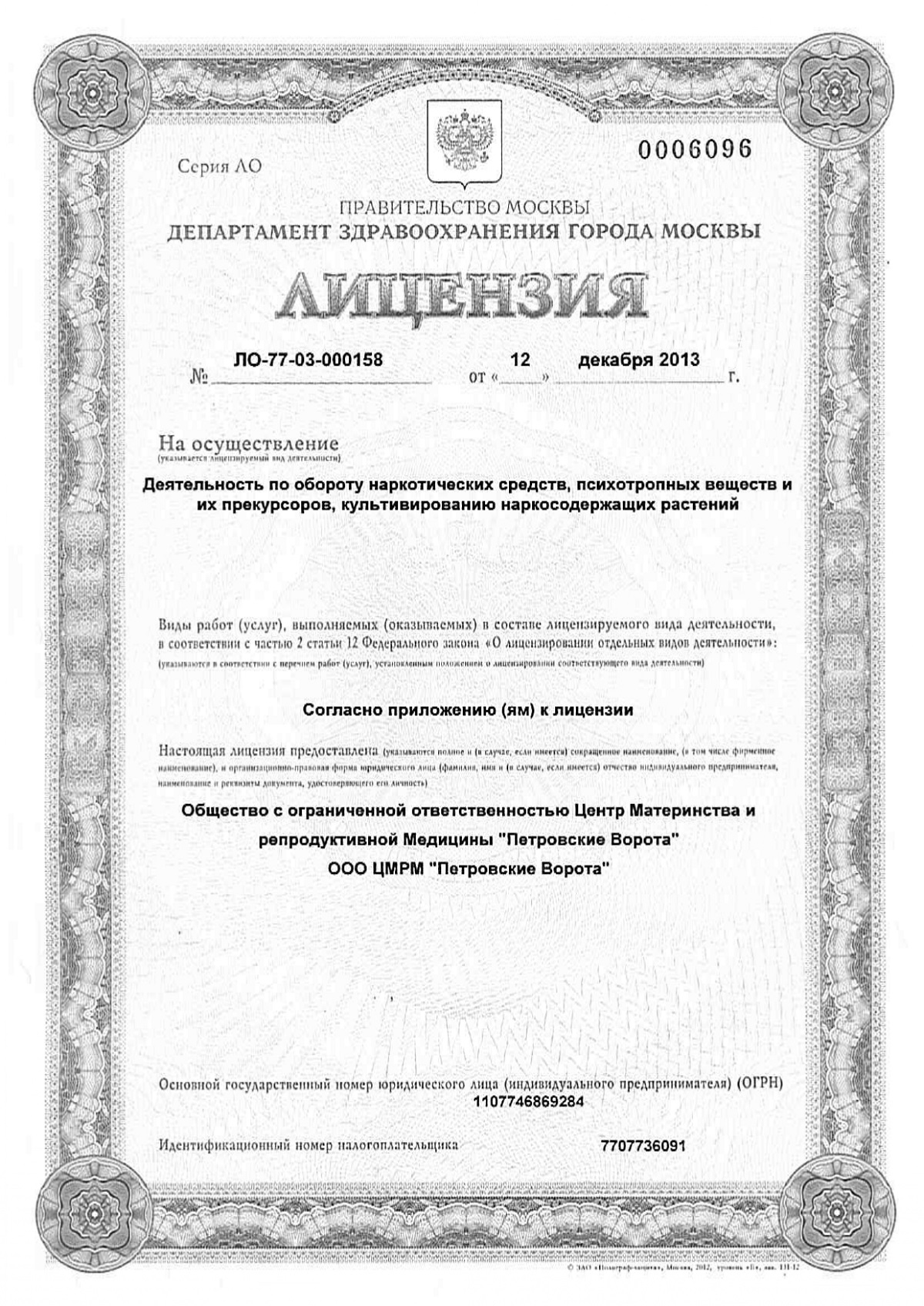
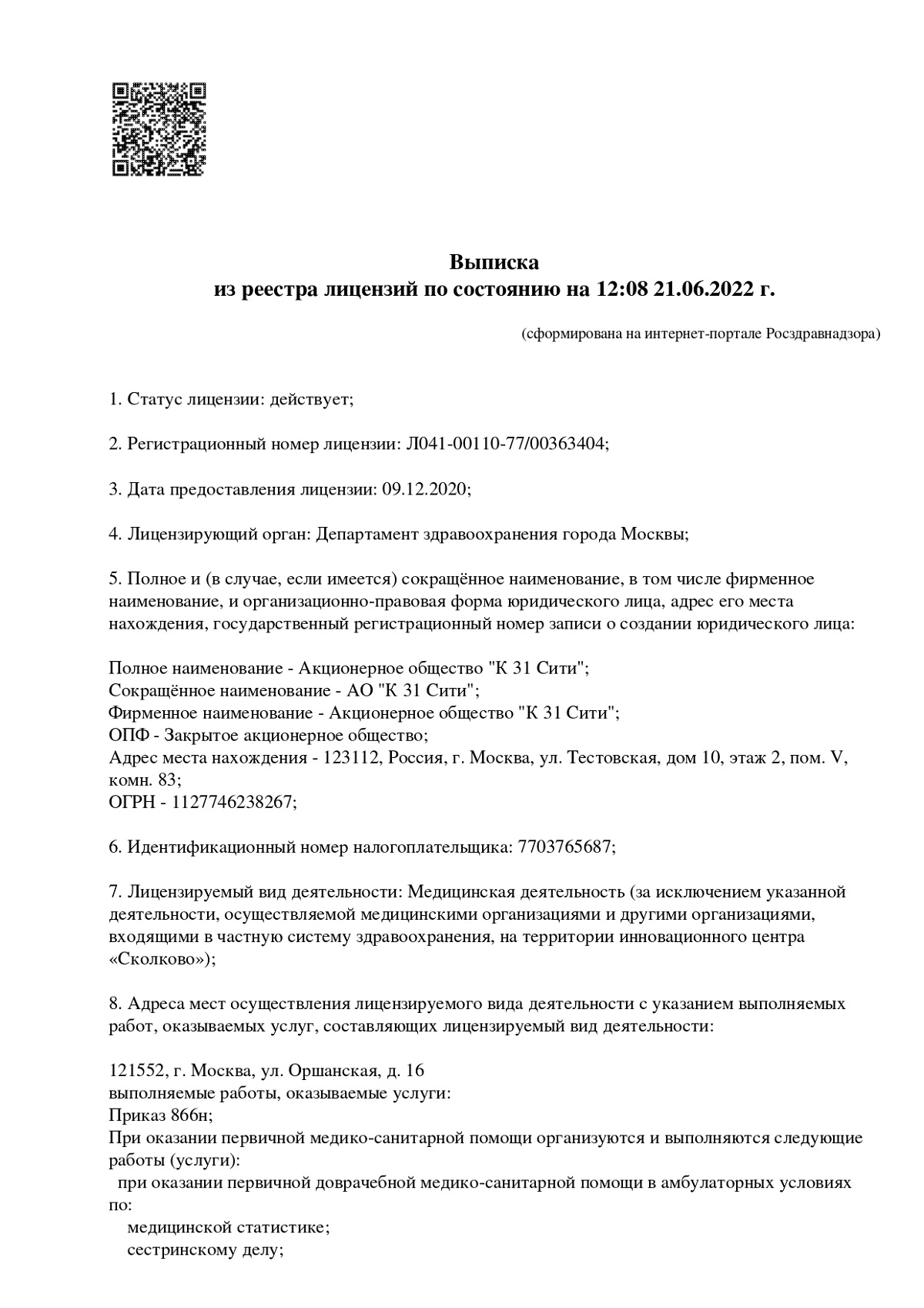
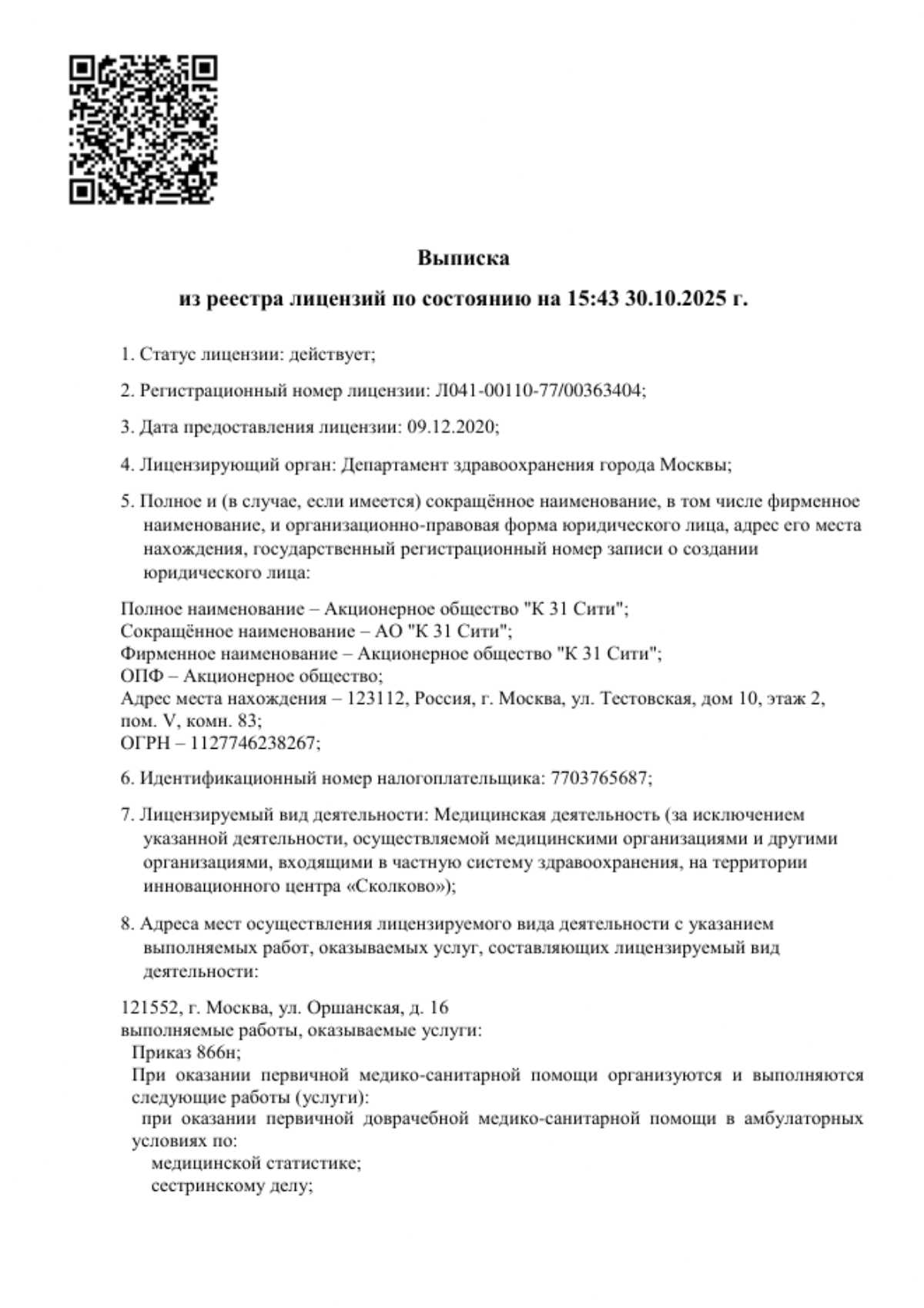
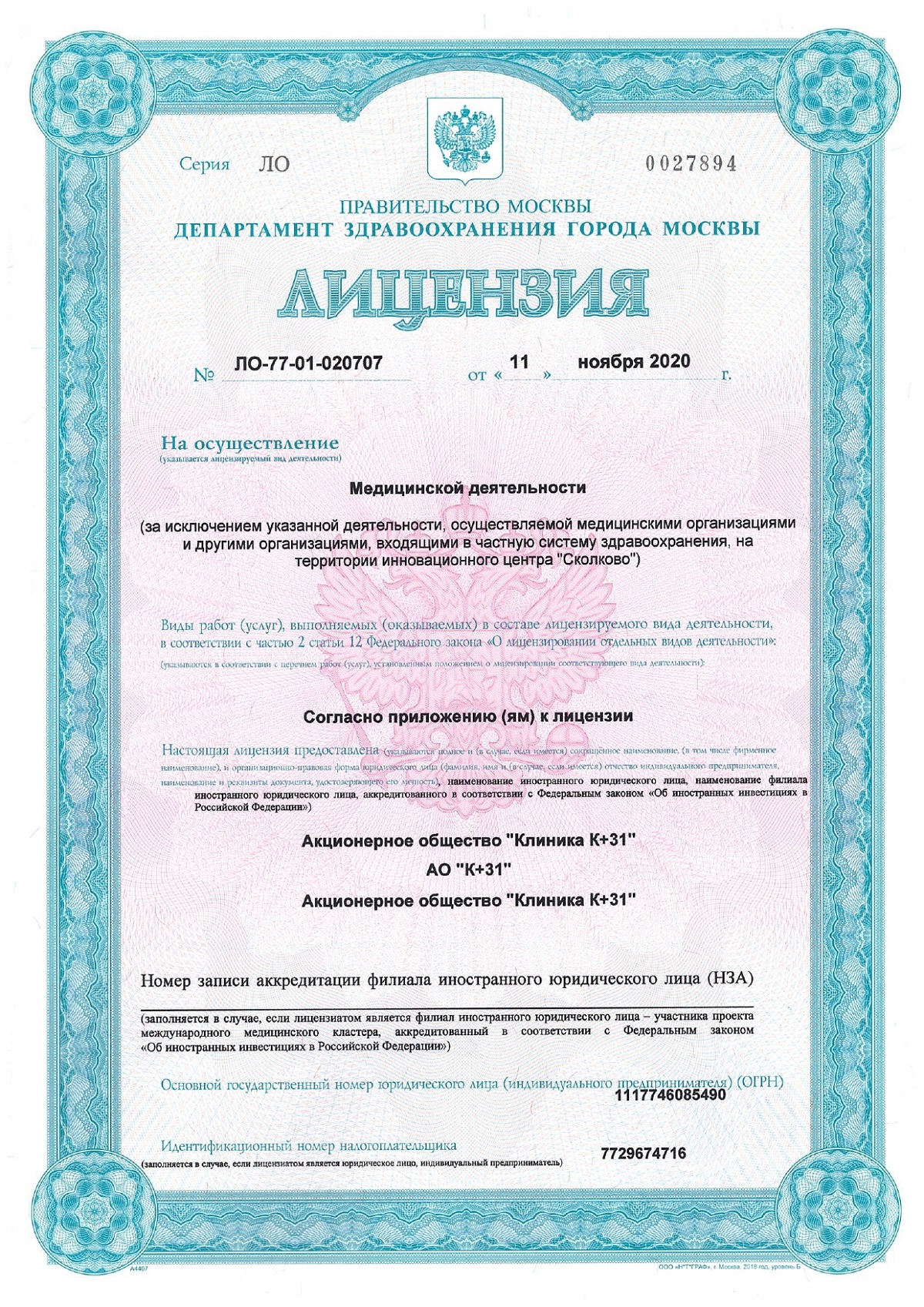
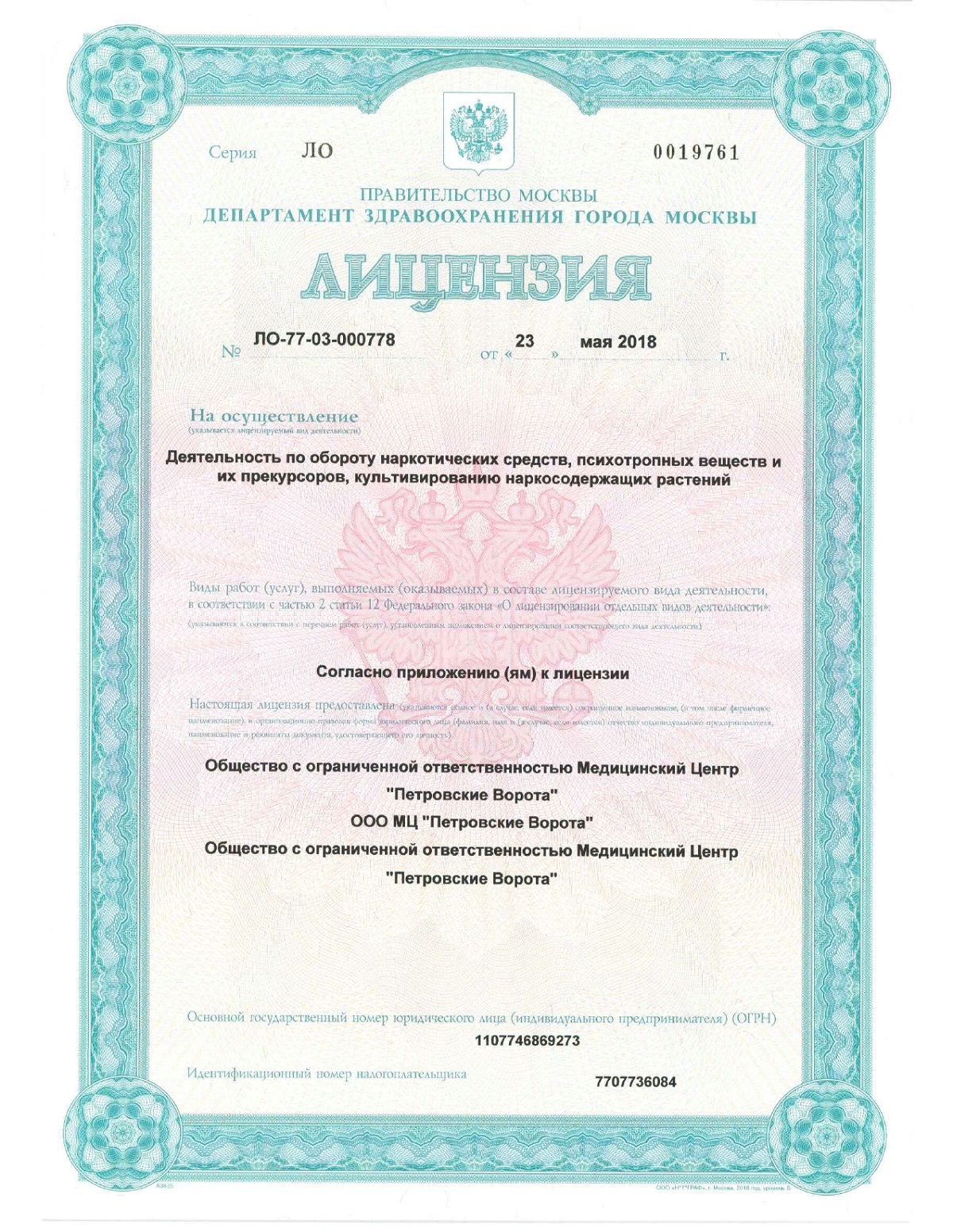
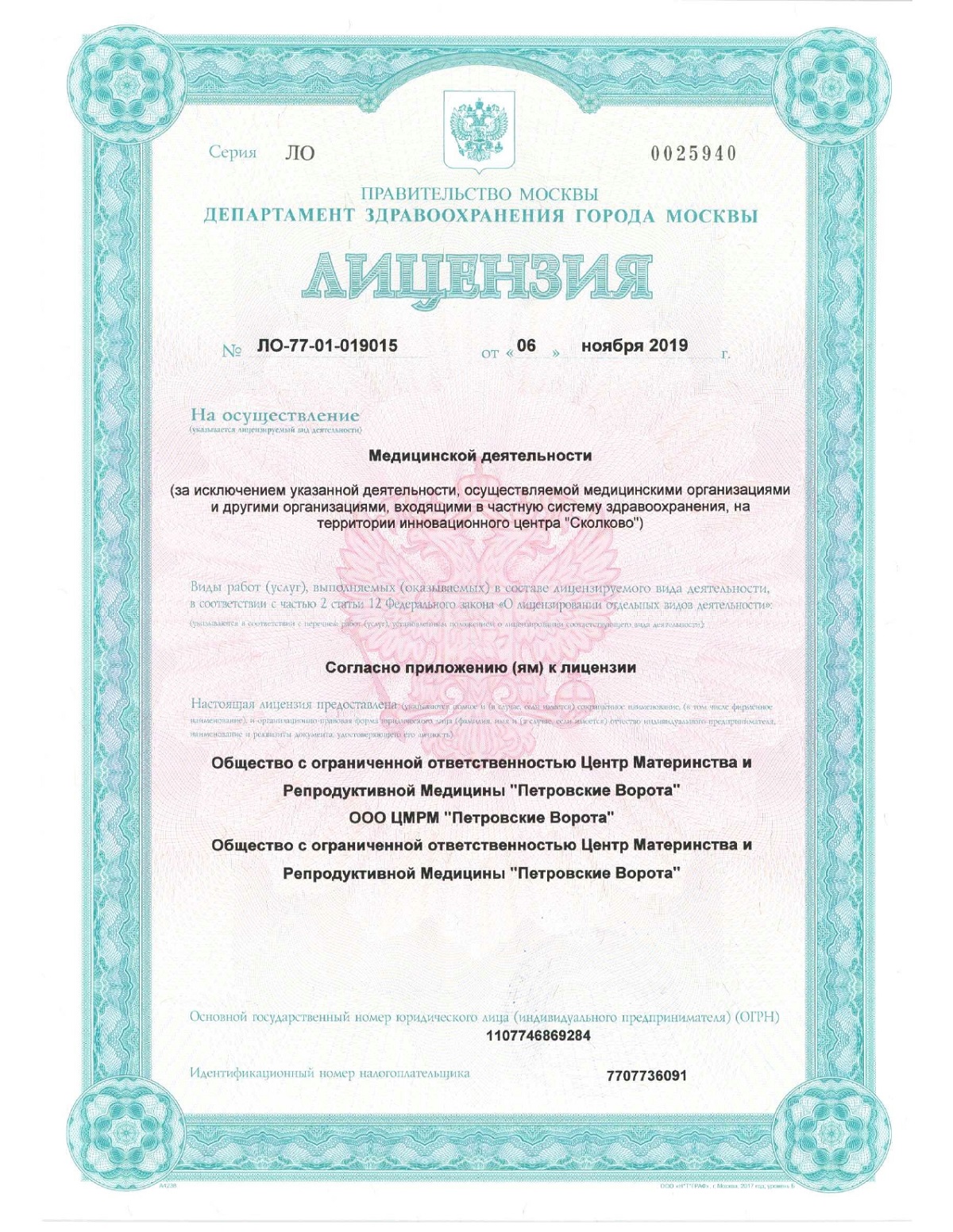
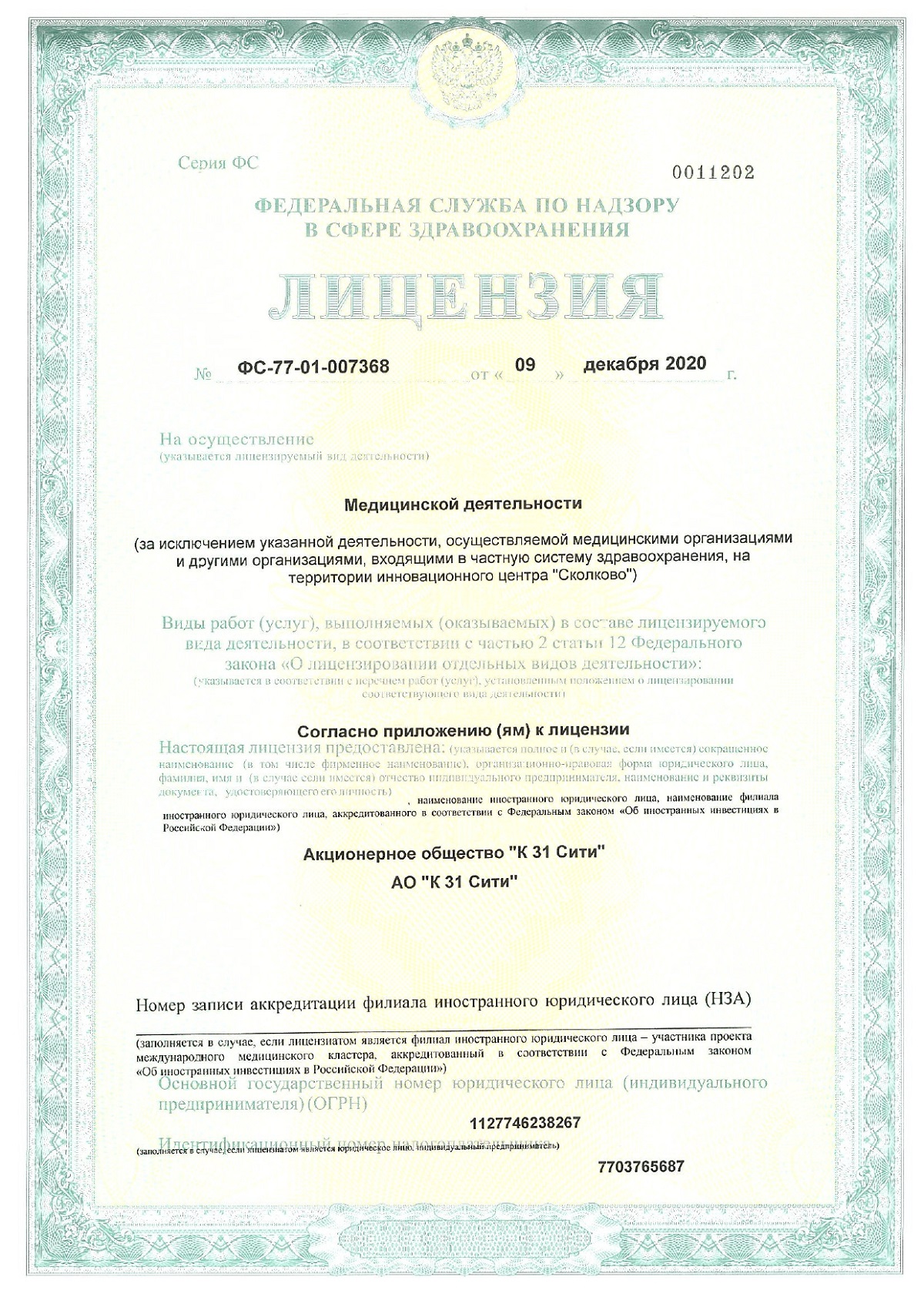



General information
Basedow-Graves disease is a hereditary autoimmune disease and is most often diagnosed in women aged 20-50 years. The pathology received its name from the scientists who studied it.
Graves' disease is caused by a malfunction of the immune system, in which the body begins to actively attack its own thyroid hormones. As a result, a large amount of triiodothyronine (T3) and thyroxine (T4) are released into the blood, the thyroid tissue grows and forms a tumor (goiter). Externally, it looks like a seal on the front of the neck and, as it grows, begins to squeeze the larynx and esophagus.
Graves' disease disrupts metabolism, leads to the development of exhaustion and associated pathologies. First of all, the cardiovascular and nervous systems suffer, problems with the eyes appear, and changes in organs occur at the cellular level. Graves' disease is often associated with exophthalmos. Autoimmune processes provoke the growth of soft tissues of the orbit, as a result of which the upper and lower eyelids begin to close poorly, which leads to visual impairment and an aesthetic defect. At risk are people whose relatives had problems with the thyroid gland, as well as smokers, the risk of developing thyrotoxicosis in them doubles.